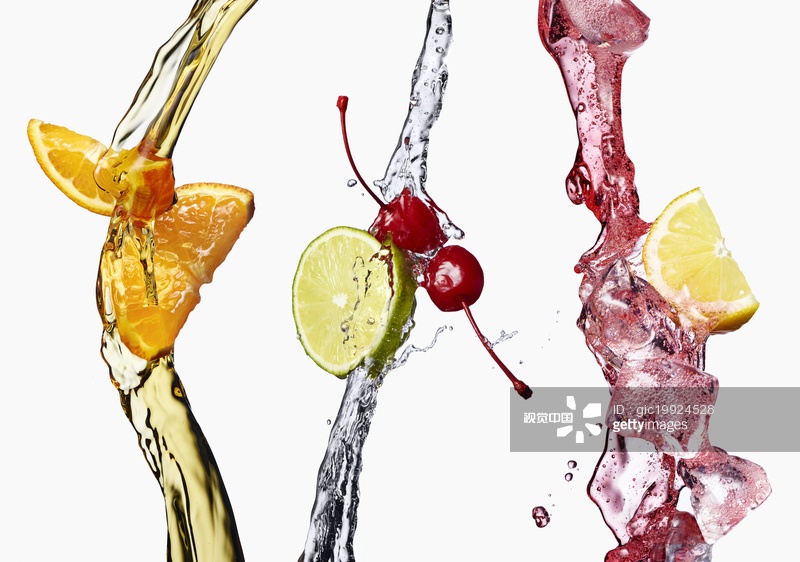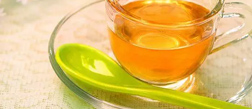Your Location:Home - News Updates > - Content
News and Information
Chinese Firms Look at Fortifying Nutrition Holdings With GNC
Time:2016-11-08 14:20:28
Source:WSJ

GNC has met with a range of Chinese buyers in recent weeks to gauge their interest in a potential buyout. ENLARGE Chinese consumers’ rising penchant for popping vitamins and supplements is leading companies there to look abroad for brands to buy, including U.S. company, GNC Holdings Inc.
The Pittsburgh. Penn.-based retailer has met with a range of Chinese buyers in recent weeks to gauge their interest in a potential buyout that could be worth $4 billion including debt, according to people familiar with the situation. The company’s market value is roughly $1.3 billion, and it has nearly $1.6 billion of debt outstanding, according to S&P Global Market Intelligence.
Interested Chinese companies include Fosun Group, a Shanghai-based conglomerate, and ZZ Capital International Ltd., a Chinese investment firm, the same people said. A number of Chinese pharmaceutical companies also have expressed an interest, they said. It is unclear whether the interest would ultimately result in bids for GNC.
Chinese buyers are swooping in on global nutritional companies and vitamin-makers as shoppers in China become increasingly health conscious. The country’s vitamins and dietary-supplement market is expected to increase by 53% to $28.7 billion by 2021, according to Euromonitor International Ltd. Chinese consumers are also putting greater trust in Western brands after a string of scandals involving counterfeit drugs and poisonous infant formula made in China.
Any deal for GNC would be the highest-profile acquisition by a Chinese company overseas in the sector.
In June, China’s Xiwang Foodstuffs Co. bought Iovate Health Sciences International Inc., a Canadian maker of muscle-building supplements, valuing the company at $730 million. In August, Shanghai Pharmaceuticals Holding Co. and China-based private-equity firm Primavera Capital Group agreed to buy Vitaco Holdings Ltd., an Australian purveyor of health food and nutritional products, for $238 million.
Ryan d’Almeida, Vitaco’s chief executive, said that he initially was shopping a 15% stake in Vitaco to potential investors but that Chinese buyers were ready to pay up for full control.
He said he understands Chinese companies’ strategic imperative to develop in the space. Chinese consumers are “not as trusting with their own local brands as they would probably like to be,” he added.
Chinese consumers are also keen on products that help counteract the heavy pollution in many Chinese cities. “We’ve seen quite a few of the products that have gathered momentum have been specifically related to antioxidants and those products that help respiratory health,” Mr. D’Almeida said.
China has been a bright spot for GNC, which sells vitamins and herbal supplements in over 9,000 locations world-wide.
The retailer—whose Chinese name means health, safety and happiness—has opened only eight stores in mainland China since it entered the market in 2011 but has become one of the top sellers on China’s online shopping sites such as Alibaba Group Holding Ltd.’s Tmall and rival JD.com Inc. While revenue in GNC’s international business fell 4.6% to $79.9 million in the first half of 2016, a $3.5 million increase in GNC’s China business helped mitigate the decrease.
Shen Xiaoxiao, a 30-year-old textile-industry professional from southeastern China’s Zhejiang province, first tried GNC products after they were recommended by a friend in 2011 and since has taken nutritional supplements daily.
“I don’t trust some of the Chinese nutritional products; you never know if they are as good as they claim,” she said. “International brands are more reliable.”
Ms. Shen said she prefers to buy these products online from overseas, or ask friends to bring them home when they travel abroad. “It is much cheaper to get these things overseas than in China,” she said.
Chinese buyers are looking to take home international brands to sell to customers like Ms. Shen.
“We believe the demand for sports-nutrition and health supplements in China will rise rapidly on the back of a growing sports market and an increasing awareness of health and fitness of the Chinese urban middle class,” said Fred Hu, chairman of Primavera Capital, which also joined with Xiwang to acquire Iovate Health.
“Domestic supply of quality and premium products remains limited,” he said.
The country’s aging population is important, too: More than half the country’s annual spending on nutritional products comes from the middle-aged and the elderly, according to the China Health Care Association.
Still, some Chinese bidders are concerned that turning around GNC could be tough. The company’s chief executive—its second in two years—resigned in July. Its same-store sales declined by 3.7% in the second quarter.
GNC is exploring options for the company with bankers at Goldman Sachs Group Inc. that could include a sale of the business, but it isn’t clear whether that is the most likely outcome of a strategic review started this year. GNC may also opt for a U.S. buyer that could grapple with fixing its U.S. business, according to a person familiar with the matter.
The Pittsburgh. Penn.-based retailer has met with a range of Chinese buyers in recent weeks to gauge their interest in a potential buyout that could be worth $4 billion including debt, according to people familiar with the situation. The company’s market value is roughly $1.3 billion, and it has nearly $1.6 billion of debt outstanding, according to S&P Global Market Intelligence.
Interested Chinese companies include Fosun Group, a Shanghai-based conglomerate, and ZZ Capital International Ltd., a Chinese investment firm, the same people said. A number of Chinese pharmaceutical companies also have expressed an interest, they said. It is unclear whether the interest would ultimately result in bids for GNC.
Chinese buyers are swooping in on global nutritional companies and vitamin-makers as shoppers in China become increasingly health conscious. The country’s vitamins and dietary-supplement market is expected to increase by 53% to $28.7 billion by 2021, according to Euromonitor International Ltd. Chinese consumers are also putting greater trust in Western brands after a string of scandals involving counterfeit drugs and poisonous infant formula made in China.
Any deal for GNC would be the highest-profile acquisition by a Chinese company overseas in the sector.
In June, China’s Xiwang Foodstuffs Co. bought Iovate Health Sciences International Inc., a Canadian maker of muscle-building supplements, valuing the company at $730 million. In August, Shanghai Pharmaceuticals Holding Co. and China-based private-equity firm Primavera Capital Group agreed to buy Vitaco Holdings Ltd., an Australian purveyor of health food and nutritional products, for $238 million.
Ryan d’Almeida, Vitaco’s chief executive, said that he initially was shopping a 15% stake in Vitaco to potential investors but that Chinese buyers were ready to pay up for full control.
He said he understands Chinese companies’ strategic imperative to develop in the space. Chinese consumers are “not as trusting with their own local brands as they would probably like to be,” he added.
Chinese consumers are also keen on products that help counteract the heavy pollution in many Chinese cities. “We’ve seen quite a few of the products that have gathered momentum have been specifically related to antioxidants and those products that help respiratory health,” Mr. D’Almeida said.
China has been a bright spot for GNC, which sells vitamins and herbal supplements in over 9,000 locations world-wide.
The retailer—whose Chinese name means health, safety and happiness—has opened only eight stores in mainland China since it entered the market in 2011 but has become one of the top sellers on China’s online shopping sites such as Alibaba Group Holding Ltd.’s Tmall and rival JD.com Inc. While revenue in GNC’s international business fell 4.6% to $79.9 million in the first half of 2016, a $3.5 million increase in GNC’s China business helped mitigate the decrease.
Shen Xiaoxiao, a 30-year-old textile-industry professional from southeastern China’s Zhejiang province, first tried GNC products after they were recommended by a friend in 2011 and since has taken nutritional supplements daily.
“I don’t trust some of the Chinese nutritional products; you never know if they are as good as they claim,” she said. “International brands are more reliable.”
Ms. Shen said she prefers to buy these products online from overseas, or ask friends to bring them home when they travel abroad. “It is much cheaper to get these things overseas than in China,” she said.
Chinese buyers are looking to take home international brands to sell to customers like Ms. Shen.
“We believe the demand for sports-nutrition and health supplements in China will rise rapidly on the back of a growing sports market and an increasing awareness of health and fitness of the Chinese urban middle class,” said Fred Hu, chairman of Primavera Capital, which also joined with Xiwang to acquire Iovate Health.
“Domestic supply of quality and premium products remains limited,” he said.
The country’s aging population is important, too: More than half the country’s annual spending on nutritional products comes from the middle-aged and the elderly, according to the China Health Care Association.
Still, some Chinese bidders are concerned that turning around GNC could be tough. The company’s chief executive—its second in two years—resigned in July. Its same-store sales declined by 3.7% in the second quarter.
GNC is exploring options for the company with bankers at Goldman Sachs Group Inc. that could include a sale of the business, but it isn’t clear whether that is the most likely outcome of a strategic review started this year. GNC may also opt for a U.S. buyer that could grapple with fixing its U.S. business, according to a person familiar with the matter.



